Texture and color of baby’s stool speak a lot about the baby’s health. Different color of baby’s poop may alarm the parents. Here you need to know the most common green stools in your baby.
A complete knowledge of your green poop in your baby helps you deal with it using the more effective ways. There are certain criteria for green poop in your baby that can cause discomfort and may irritate your baby which you can know in this article.
This article discusses the causes for the green poop in your baby. It presents some home remedies for green stools in your baby.
Green Stools in Babies:
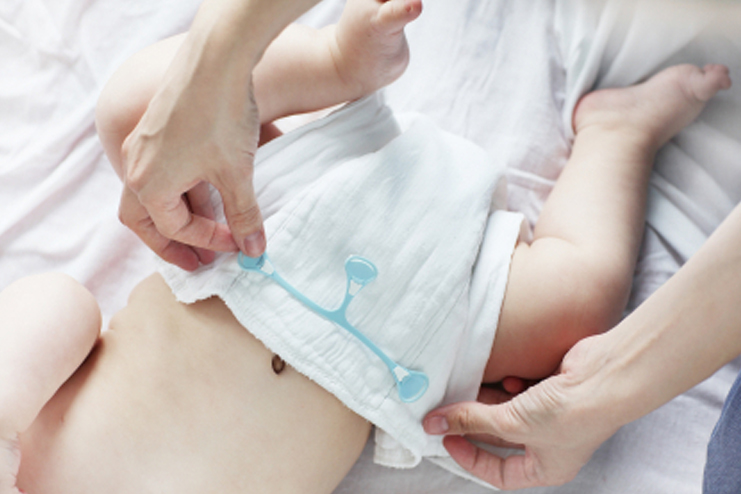
The normal color of the stool may vary from the light to the dark brown. Stools get their color from the yellow fluid produced by the liver called bile. This bile helps in digesting your food. Whenever the food passes through the digestive tract, bile is break down by the digestive enzymes which results in various shades of the brown stool.
Green stool is a condition where the feces of the baby look green in color. It is more common in some babies such as in breast fed infants. It can be the result of taking some iron supplements or eating certain foods such as green leafy vegetables. Green stool is a sign that your baby is suffering with some digestion problem due to some disease, disorder and some other abnormal process.
It is more common that the newborn’s poop color looks green during their first week which gradually changes as they grow. In some cases the stool looks green in color when it is moved quickly through the digestive tract which is not fermented properly. Under this condition, green stool is caused by the undigested bile. Undigested bile may cause irritation and burning sensation to the colon. The high chlorophyll foods including green vegetables, spirulina may contribute to the green stools.
Symptoms of green stool in babies:
Green poop in babies is not major cause of concern in babies. It may be the result of food, diarrhea, or bacterial infections.
The symptoms of green stool may vary depending on the severity of the underlying condition. Symptoms of the green stool may include:
• Abdominal pain or cramping
• Swelling or bloating of the abdomen
• Change in the bowel habits
• Diarrhea
• Indigestion accompanied by gas
• Flu like symptoms including fatigue, fever, sore throat, head ache, cough, aches, and pain
• Foul smelling in the stool
• Mucus or the undigested food in the feces
• Poor appetite accompanied by nausea or vomiting
• Burning or itching sensation in the rectal region
• Unexpected weight loss
What Green stools in the breastfed baby indicate?

If your breastfed baby has green stools, these might be the reason:
• Imbalance of the foremilk may result in green stool in babies.
• Sometimes inclusion of dairy products like cow’s milk in the mother’s diet may impact the quality of the breastmilk.
• Intestinal virus or the symptoms of cold may turn your baby’s stool mucus and green.
What Causes Green Stools in babies?
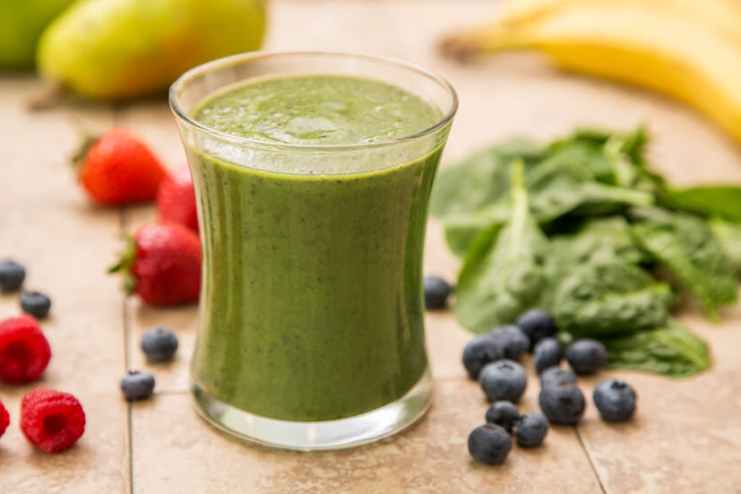
Normal or benign conditions may cause green stools in babies and not a cause of concern. Here are a few causes for green stools in babies:
1. Transitional Poop:
When you breastfeed your baby for the first time after the birth, they will pass stool in the form of meconium which is a green substance that forms the first feces of the newborn.
As your baby begins taking the breastmilk, it gradually turns to the normal color. This is quite normal during the first week of your newborn baby.
2. Baby’s diet:
This is one of the reasons for green poop in babies. If your one year old baby is fed with some food which is rich in chlorophyll like green leafy vegetables, or peas they are likely to pass the green poop. The main reason for this is your baby might have swallowed the food without chewing or it may have passed through the digestive tract so quickly.
3. Imbalance between foremilk and hindmilk:
Foremilk is the one which comes out first. There said to exist imbalance when there is imbalance in the mixing of the milk. Foremilk contains low fat constitution and rich in lactose. Hindmilk which comes after the foremilk is rich in fat. These two together can make a perfect blend that is essential for your baby’s diet.
The abundance of the foremilk can make the baby feel full before they get the hindmilk. This may cause the digestive problems due to the lack of lactase that breaks the lactose. This digestive problem leads to green poop in babies.
4. Teething:
During the teething phase, babies are likely to swallow the excessive drool leading to the intestinal irritation. This irritation leads to the green and the mucous stool in babies.
5. Illness:
If the babies have viral infection or suffering from the stomach flu, these two conditions may make the baby to suffer from the diarrhea which is the condition where the children experience the watery stools. Continuing the breastfeeding under this condition can help your baby to get some antibodies that boosts the immunity of your child.
If this condition sustains for more than a few days, take you baby to the doctor before they run into dehydration.
Here are some signs to say that your baby is dehydrated:
• If you notice that your baby crying with no tears.
• Dry lips and dry mouth in the baby
• Your baby’s diaper remain dry for longer time
• Sunken eyes and cheeks in your baby
• Sunken soft spot on the top of your baby’s head
6. Diet of your mother:
If the diet of the mother is filled with more green food such as peas or green leafy vegetables, then the babies are likely to pass the green colored poop. Any artificial colored foods in the nursing mother’s diet may also contribute to the green poop in babies. Under these circumstances, the milk may also look green which is harmless.
7. Medication:
Iron consumption of the nursing mother may contribute to the green stools in your baby.
8. Allergic reaction:
If the some allergic food is consumed by the nursing mother or by the baby, it may result in the green stool. Dairy products like cow milk or some medications may be the irritants that leads to the change in poop color.
Allergic reactions are accompanied by other symptoms such as skin rashes or breathing problems.
9. Jaundice:
Some newborn babies are at the risk of Jaundice as their livers are immature and could not process the bilirubin processed by the body. This condition is normal in newborns and often disappears in two weeks. Anything more beyond the usual symptoms may be the sign of underlying liver condition and require doctor visit.
10. Food Poisoning:
The sensitivity of your baby’s digestive system may vary with the different foods. The most common symptoms of food poisoning in babies is light fever which is accompanied by the abdominal cramps and fever.
11. Other health disorders:
Health disorders including the allergies can make the babies more prone to pass the green stools. Any other underlying disorder may lead to the increase in the mucus content leading to the green stool.
Green stool syndrome of the newly born infant:
Possible treatment for green stools in babies:
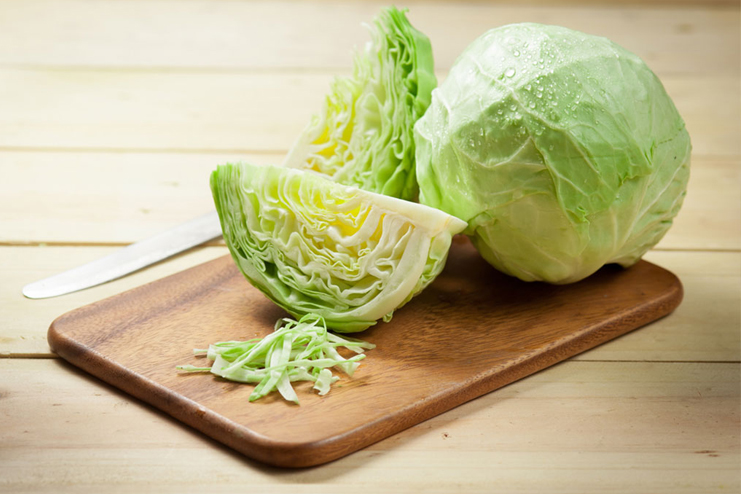
Most of the causes that causes green stools in babies are harmless and they do not create any long term effects in your baby. There are some signs which may need immediate medical attention:
• An upset tummy resulting from the viral infections may lead to the diarrhea and green stools in your baby. Which in turn lead to the another problem known as dehydration which can be treated with some simple home remedies.
• Children who suffer from the severe jaundice are treated with the phototherapy that accelerates the process of bilirubin by the body. Glycerine suppository is advised by the doctor in certain conditions.
Green stools can be prevented by the over supply of the milk which can be achieved through variety of techniques:
1. Exclusive feeding:
This is one of the reasons for the green colored stools in babies. Studies show that providing the hindmilk may positively impact the health outcomes of the baby.
Babies might encounter the problem when there is too much of foremilk and the less hindmilk. This problem can be eliminated with the help of exclusive feeding where the babies are allowed to rely only on the one breast for more feeds to ensure that babies get both parts of the milk. If you feel more pressure in the other breast use the breast pump and take out the excess milk to relieve the pressure.
2. Medication to reduce the milk supply:
Some of the medications such as cold medicines help to reduce the milk supply as the side effect. This approach should be applied only after the consultation from the doctor as there are many other side effects.
3. Take cabbage:
Studies show that cabbage is effective in treating the breast engorgement which is a conditions where the breasts are overfull of milk. Apply some chilled cabbages over your nipple for about 30 minutes not more than 3 times a day.
After receiving the appropriate treatment, it is more essential to get help from your healthcare provider to reduce the potential complications including:
• Loss of fluids which leads to dehydration
• Low potassium levels
• Malabsorption syndrome
• malnutrition
Home Remedies for green stools in babies:
There are many home remedies which are safe to use for the children with Green stools. If your baby’s stool color look watery and green, it is a sign a diarrhea. Here are a natural remedies to get rid of green stools accompanied by diarrhea in babies:
1. Mustard Seeds:
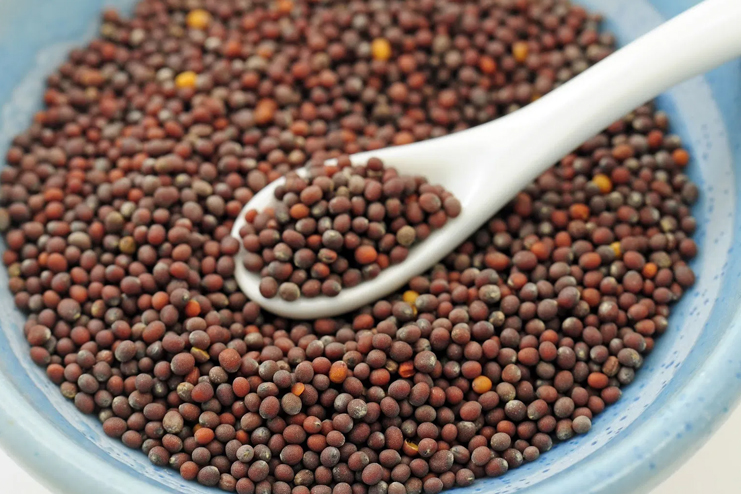
Mustard seeds are rich in calcium, magnesium, omega 3 fatty acids, iron, zinc, and fiber. It offers protection against asthma, heart attacks, and migraines. It is one of the best remedies for green stools in babies.
How to use:
1. Take tablespoon of mustard seeds and make them into a fine powder in a mixer.
2. Take a pinch of mustard powder and add this to small glass of water.
3. Give this mustard seeds water to your baby twice a day.
2. Banana:
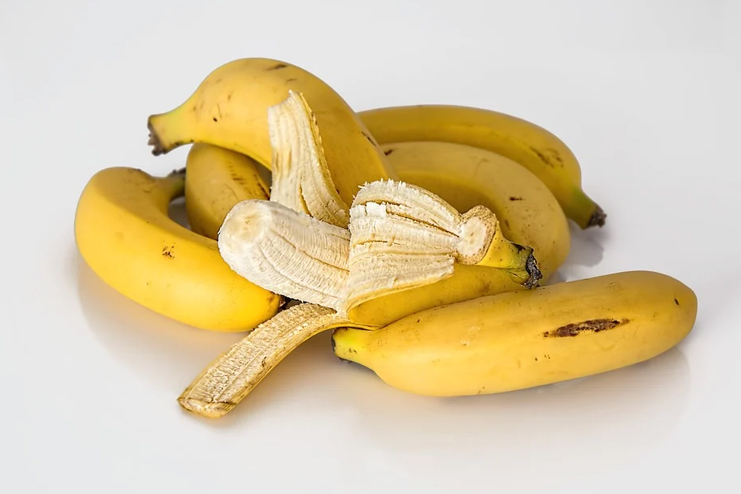 Studies show that banana improves both diarrhea and constipation. Potassium levels are greatly reduced during diarrhea. Banana helps to restore the potassium and helps the body to restore essential nutrients and energy that are lost during diarrhea accompanied by the green stools.
Studies show that banana improves both diarrhea and constipation. Potassium levels are greatly reduced during diarrhea. Banana helps to restore the potassium and helps the body to restore essential nutrients and energy that are lost during diarrhea accompanied by the green stools.
How to Use:
1. Cut the banana into small pieces and mash it.
2. Give this mashed banana to your baby especially in the morning.
3. Oral rehydration Solution:
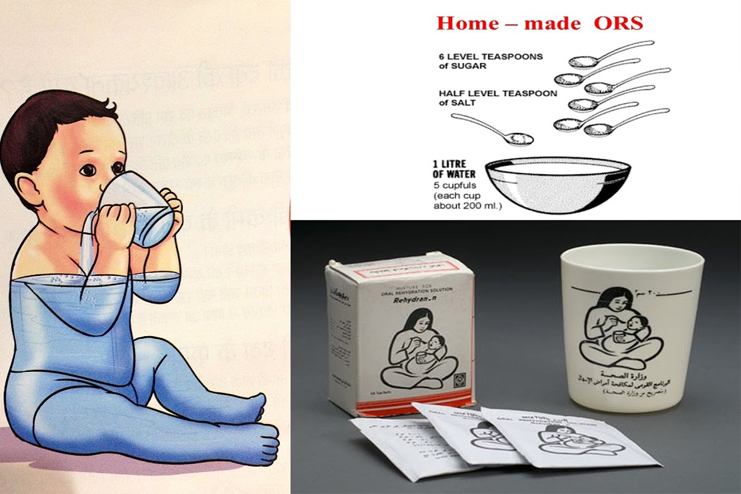
ORS helps to restore the water and minerals that are lost during diarrhea, and vomiting. It hydrates the body by offering the water that is lost during diarrhea. The proper functioning of the body requires right amounts of fluids and minerals.
How to Use:
ORS solution can be found at the stores or it can be prepared at home with a few simple steps. Here are a few steps to prepare ORS at home:
● Boil filtered water and allow it to cool
● Add 1 tablespoon of sugar and 1/4 teaspoon of salt to a glass of water.
● Mix this solution until the solvents get dissolved completely
● Give this solution to your baby more frequently to make up the water lost during diarrhea.
4. Coconut Water:
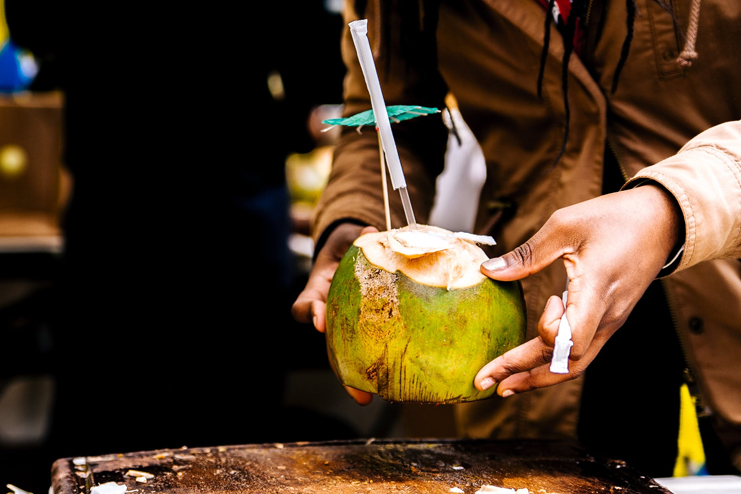 Coconut water is a good source of many nutrients and have antioxidant properties. It helps your child to get relief from both green stools and diarrhea.
Coconut water is a good source of many nutrients and have antioxidant properties. It helps your child to get relief from both green stools and diarrhea.
How to Use:
Give your child coconut water 2-3 times a day to regain the fluids lost due to diarrhea.
5. Starch Rich Products:
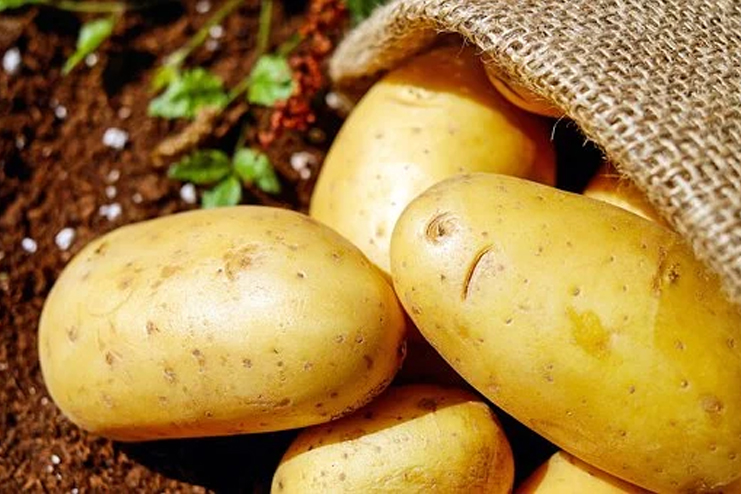 Starch foods are the source of wide range of nutrients in the diet and a good source of energy. They contain fiber, calcium, iron, and Vitamin B. Starchy foods include breads, pasta, rice, cereals, oats, and barley. Starch rich foods help in preventing diarrhea in babies.
Starch foods are the source of wide range of nutrients in the diet and a good source of energy. They contain fiber, calcium, iron, and Vitamin B. Starchy foods include breads, pasta, rice, cereals, oats, and barley. Starch rich foods help in preventing diarrhea in babies.
How to Use:
If you have started feeding your baby starch rich foods then potato is the good choice. Being abundant in starch, they help the babies to get relief from the diarrhea.
1. Boil the potato until it is soft and mash it.
2. Add a pinch of salt to the mashed potato.
Note: To prevent the gas formation add the powder of roasted cumin seeds to it. This can be fed to your baby once a day.
6. Mint:
 Mint helps for the smoother digestion. It has anti inflammatory properties and helps in soothing the swelling. It has antibacterial and antiviral properties that keeps your baby away from the cold and flu.
Mint helps for the smoother digestion. It has anti inflammatory properties and helps in soothing the swelling. It has antibacterial and antiviral properties that keeps your baby away from the cold and flu.
How to Use:
1. Take out the juice from the mint leaves and add honey, few drops of lemon to it.
2. Give this to your child 2-3 times a day.
Note:
Do not give this to the babies below 2 years.
7. Pomegranate Juice:
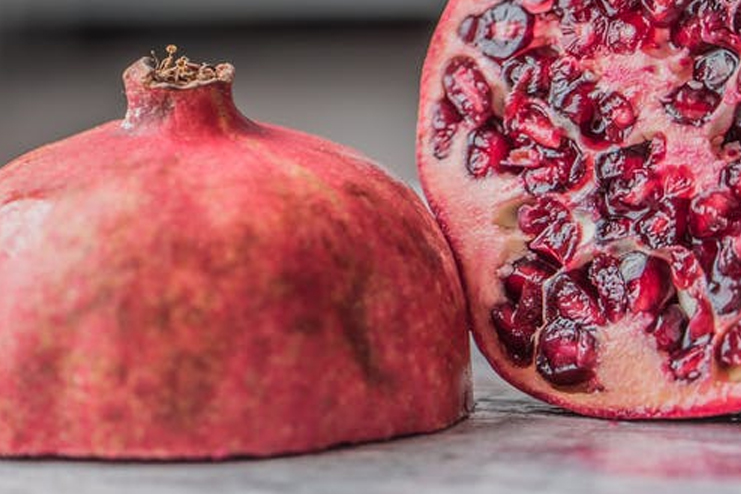 It is the source of antioxidants and fiber. It has many medicinal properties and being used to treat various infections from the ancient times.
It is the source of antioxidants and fiber. It has many medicinal properties and being used to treat various infections from the ancient times.
How to Use:
● Give the pomegranate juice to your baby at the regular intervals to keep your baby hydrated.
● If you feel that your baby is not strong enough to digest the pomegranate then dilute it with water.
8. Curd:
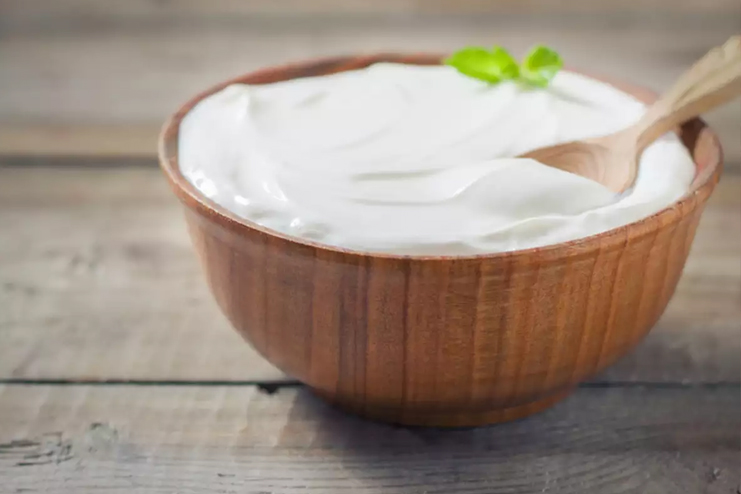
It is the major source of probiotics. These are the yeast and bacteria which benefit the digestive system. Curd helps in promoting the digestion and boosting the immunity.
How to Use:
You can serve it to your baby by adding a pinch of roasted cumin seeds’ powder, salt or sugar. Curd is regarded as the gut friendly food especially when your baby has diarrhea.
9. Carrot Juice:
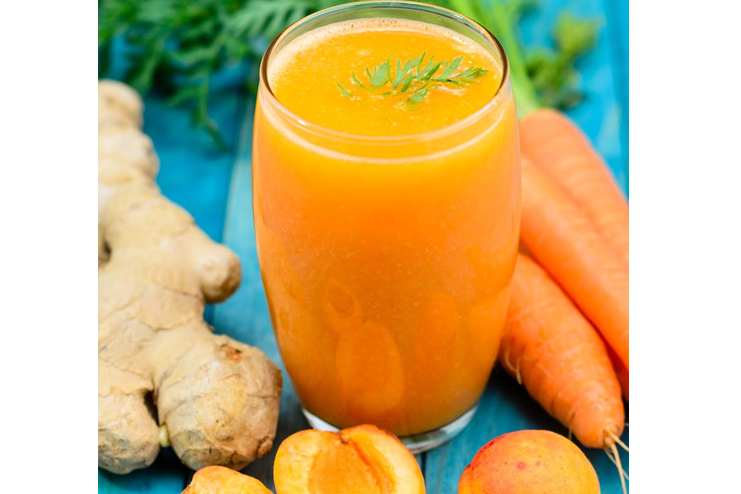 Carrot is well known to improve the vision. It increases the metabolism and boosts immunity system. This natural remedy helps relieving diarrhea in babies.
Carrot is well known to improve the vision. It increases the metabolism and boosts immunity system. This natural remedy helps relieving diarrhea in babies.
How to use:
● Use carrot puree or juice to help your child retain the energy during the times of diarrhea.
● It is the best remedy for the babies above one year of age.
10. Lemon:
 Lemon are the rich source of vitamin C, soluble fiber, and plant compounds. Lemon reduces the risk of digestive issues, kidney stones, anemia, and cancer.This is one of the best remedies for diarrhea in babies.
Lemon are the rich source of vitamin C, soluble fiber, and plant compounds. Lemon reduces the risk of digestive issues, kidney stones, anemia, and cancer.This is one of the best remedies for diarrhea in babies.
How to Use:
Give your baby 4-5 a day spoonful of lemon juice that helps your baby to relieve diarrhea and other digestion issues. This natural remedy helps in restoring the PH level of the body.
11. Rice Water:
Rice water is effective in treating many skin infections and the health conditions including diarrhea. It offers energy and easy to digest during the times of stomach upset. Research by NCBI stated that Rice water helps in providing more calories during rehydration.
How to Use:
1. Take uncooked rice and wash it properly to remove the dust and impurities.
2. Now soak it in the water for 30 minutes and boil it for about 20 minutes.
3. When the rice is half cooked drain out some water and give it to your baby by adding pinch of salt.
Tips to prevent green poop in infants:
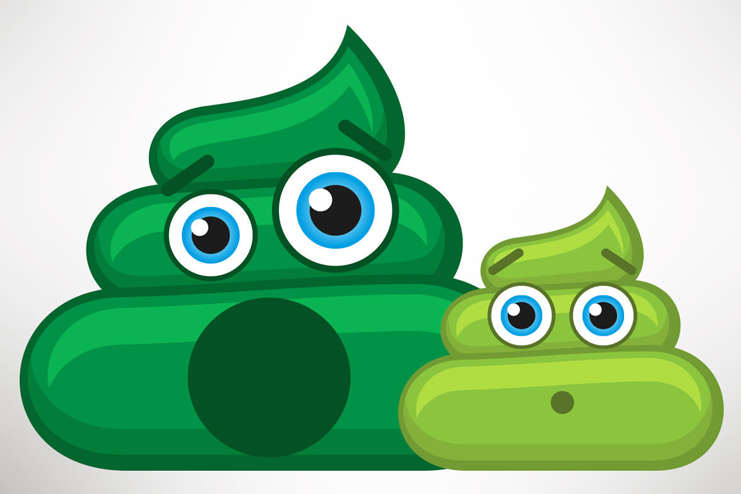
Here are a few tips to prevent green poop in infants:
• Avoid eating green colored vegetables as they contribute to the green stools.
• Avoid cow’s milk, as they make your baby vulnerable to pass the green stools due to the overload of lactose.
• Chart the medical history of you and your husband to keep your baby away from the food items that can cause the allergic reactions. If your baby has come across the allergic reaction, note down the food that you have eaten before.
In conclusion, it is not good to neglect any discomforts in your baby. If you notice the green stools in your baby accompanied by any other digestive problems like diarrhea that lasts more than two days seek immediate medical attention.







































